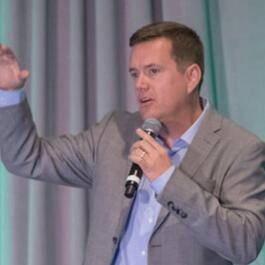
David Dulany | Make Your Sales Development Team Your Sales Bench
Many tech companies view the idea of SDRs as advantageous because they deal with the tough or mundane elements of the sales process like cold calling, making lists, and following up with inbound leads. But SDRs, with the proper training and support, can be much more. In today’s episode of The Sales Evangelist, we’re joined by David Dulany, founder and CEO of the research and advisory firm Tenbound, to learn how you can develop your sales bench. The elements of a good sales bench: Your SDR team is a group of people who, when needed, have learned the skills necessary to jump into a full sales position when one becomes available. To understand which skills are most valuable, analyze your recruitment process and list out traits that make someone successful at your company. Are they tenacious, proactive, or require specific technical skills? Create a plan to incorporate training elements for each of those skills for your SDR team and develop ways for new hires to understand what they need to be successful right from the get-go. The biggest mistake we see with SDR teams is not establishing a solid company culture. The old hiring method was simply to churn and burn. But in today’s market, where employees need tools and equipment to be successful, it’s an incredibly inefficient and expensive process. In the modern world, culture is everything. A successful SDR team leader establishes that. To develop the ideal team culture, write down what you want to culture to look like. Once you have a semblance for your vision, integrate elements relating to it into your SDR training process. Sales is becoming an increasingly team-driven activity; the days of the lone wolf are long over. Provide a path to promotion. Certifications are a great way to break down the goals you want employees to achieve before a promotion. A ladder setup provides concrete goals for SDRs to work towards and promotion opportunities. David’s major tips: For SDRs, take the position seriously; it’s a critical piece of the puzzle. For people leading SDR teams, integrate structure, value, and opportunities within the SDR experience. Doing so will help people take the position more seriously and want to grow within the organization. To learn more about David’s approach to SDR development, check out his book The Sales Development Framework. Otherwise, visit his company website to find resources to help develop your sales bench. This episode is brought to you in part by Skipio. Are you sick of crickets? As a salesperson, the pain of reaching out with phone calls or emails and not receiving a response is real. But all text messaging is not created equal. 85% of people prefer text over email and phone calls because they want to engage in a conversation, not listen to bots. Be more like people and start having conversations that end in the conversions you want. Try Skipio at www.Skipio.com. This course is brought to you in part by the TSE Sales Certified Training Program, a course designed to help new and struggling sellers to master the fundamentals of sales and close more deals. Help elevate your sales game and sign up now to get the first two modules free! You can visit www.thesalesevangelist.com/closemoredeals or call (561) 570-5077 for more information. We value your opinion and always want to improve the quality of our show. Complete our...
From "The Sales Evangelist"




Comments
Add comment Feedback